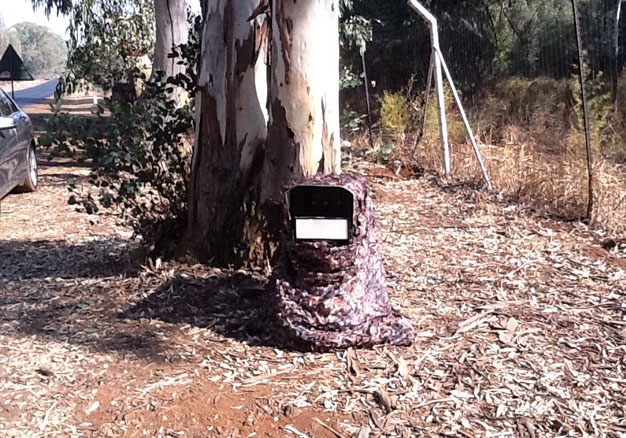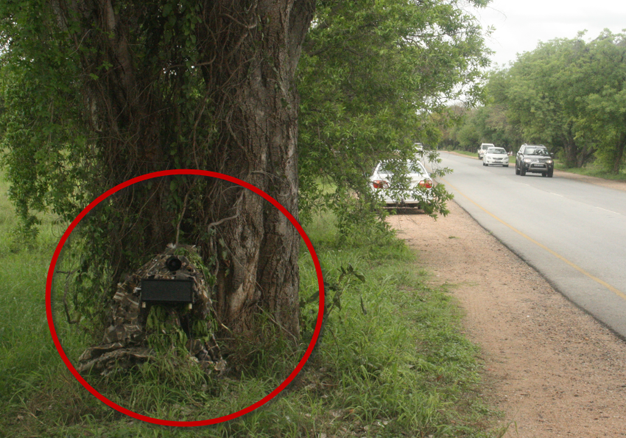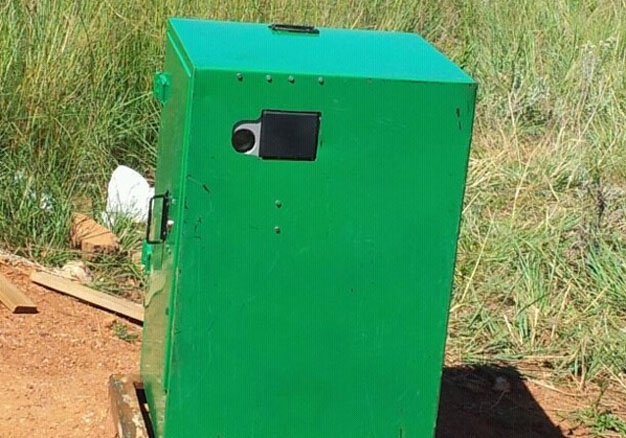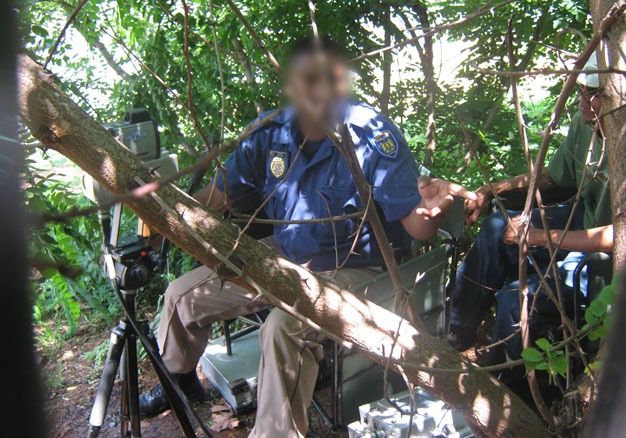
Cape Town - The debate surrounding the efficacy of speed cameras has been raging on internationally for a significant time now, with no clear winner emerging in this debate – at least that is what appears to be the case.
The underlying topic of this debate is always whether speed cameras actually have the effect of saving lives, or whether their purpose is to generate revenue.
Justice Project South Africa's National chairman, Howard Dembovsky, shares his views:
South Africa is renowned for much of the research it conducts and innovation it brings in a number of fields, but sadly road safety research and innovation is not one of them. Instead, South Africa generally relies on what’s done elsewhere in the world, incorrectly in my view believing that if foreign concepts are imported into our country, they will yield the same, or even better results to those which are experienced elsewhere.
In this regard, the research on the efficacy of speed cameras in countries like the United Kingdom is generally imported into South Africa and used to justify the proliferation of the use of speed cameras locally.
Speed cameras in SA - Do you think they're effective at reducing road deaths and curbing poor driving behaviour? Email us
Where local “research” is conducted, it is generally conducted by commercial enterprises who have a direct financial interest in ensuring that speed cameras are deployed en masse in order to sustain and grow their business models which are predicated almost solely on the issuing of as many “speeding” fines as possible.
READ: Do speed cameras really save lives?
Take for example the so-called “research” conducted by Traffic Management Technologies (TMT Services), uploaded to a local University’s website to give it a semblance of credibility.
This paper blindly ignores the fact that the World Cup (otherwise known as e-tolls) roads construction phase got going in earnest in the early part of 2009 and had the effect of slowing traffic down to a virtual crawl, due to the sheer congestion it caused. The author disingenuously attributes the slowing in the average speed to the deployment of speed cameras, obviously because this suits his narrative and company’s business model.
The provisions of the AARTO Act were proclaimed to be in force in the jurisdiction of the Johannesburg Metropolitan Municipality with effect from 1 November 2008, not 1 April 2009 as claimed.
What actually happened around that time was that the JMPD, under the stewardship of TMT Services unlawfully continued to issue fines in terms of the Criminal Procedure Act and this resulted in the JMPD being forced to withdraw and offer refunds for all of the fines it issued between 1 November 2008 and 11 February 2009.
From 1 April 2009, the JMPD went bananas deploying portable speed cameras in an apparent effort to make up the three months’ worth of fines it envisaged having to refund.
But even where local “research” is conducted by the Road Traffic Management Corporation (RTMC), which has consistently maintained the slogan “speed kills”, the methods employed are so far from scientific that one has to exercise a remarkable level of restraint to prevent oneself bursting out laughing at their “findings”.
Just how the RTMC, which apparently has a “head of research” expects anyone to swallow that the installation of “a ‘dummy camera’ fitted only with a flasher on a section of road outside Bloemfontein that was notorious for serious crashes” for a period of one month evidences the efficacy of hidden speed cameras completely evades me.
Given that the RTMC apparently has a “research department”, one would expect that it would have conducted extensive research into the efficacy of speed cameras, and in particular hidden speed cameras in the more than a decade that it has existed. Instead, its sole reference to such “research” arises out of the placement of what was obviously a single visible “dummy” speed camera on a road network comprising no less than 750 000 kilometres, for one month, six years ago, in 2011. Please!
May I further remind everyone that the RTMC failed to publish any calendar year reports dealing with road fatalities from 2011 until a little earlier this year when it hurriedly published the 2011, 2012, 2013, 2014, 2015 and 2016 reports in one fell swoop? And while we are at it, let’s not forget that our road crash fatalities and injuries have consistently climbed over the past two decades and in particular, since the proliferation of hidden speed cameras has become commonplace, no matter how hard the RTMC tries to fudge the statistics.
So, given the fact that I and JPSA have consistently asserted that “the proponents of camera-based ‘speed enforcement’ make claims of it enhancing road safety, whilst simultaneously failing to provide any empirical evidence to support their claims that hidden speed cameras reduce crashes,” and the fact that it should be abundantly clear that no reliable or even moderately credible local research does exist, one is left with little option but to resort to findings by institutions outside of the confines of South Africa.
Here too, those who would have you believe that the use of what are regarded as “hidden speed cameras” in the UK is in any way even remotely similar to how they are deployed in South Africa see fit to compare apples with bush pigs.
In the UK, a “hidden” speed camera is regarded as one which is operated from within a highly visible, marked police van. Obviously the camera itself is not visible to the naked eye, but that doesn’t mean that the van from within which it is operated isn’t – not even by the farthest stretch of the imagination.
By stark contrast, in South Africa “hidden” means just what the word implies and extraordinary lengths are often gone to in order to hide such cameras from, not only plain sight, but even from precision air strikes.
How else do you explain the deployment of speed cameras which are supplied disguised as electricity boxes and/or with military grade camouflage netting? How else do you explain traffic officers going to the trouble of nestling themselves inside bushes, behind barriers, and so on?
Surely you jest when you say these local deployments have anything whatsoever to do with “road safety”!
But there’s even more to the dissimilarities between the UK studies and the South African reality. Whereas the dated report of Dr Adam Snow from the University of Liverpool refers to around 2 million camera speeding fines being issued over a one-year period (2014) in relation to the UK’s vehicle and driver population which is around three times that of ours, the JMPD alone issued more than twice that many camera speeding fines (4.66 million) in the 2015/16 financial year.
The JMPD is but one of more than 200 traffic law enforcement authorities in South Africa and no-one really knows what the full extent of the issuing of traffic, and in particular, speeding fines is on a national basis. That said, let’s not forget that Ubuntu Municipality sources some 49% of its entire municipal budget from speeding fines.
Furthermore, the involvement of private enterprises in traffic law enforcement and more importantly, benefiting from the monies generated by “speeding” fines is non-existent in the UK, whereas in South Africa, a multi-billion rand traffic fines empire has been created by the propensity of our municipal authorities to engage the services of such companies and pay them “per prosecutable offence”, as opposed to buying the equipment outright.
The sudden cancellation of speed camera contracts in Johannesburg with effect from the end of February 2017 had nothing to do with the JMPD wishing to engage in greater physical law enforcement; it resulted from a purge of illegal contracts extended by the previous administration.
But that’s not all; not even by a long shot!
The proliferation of the deployment of these weapons of mass prosecution has in turn led to a mushrooming of “traffic fines administration” enterprises whose almost sole purpose it is to feed the system by negotiating discounts with the issuing authorities, regardless of whether the fines in question are valid or not.
And then comes the best part, where elitist Homeowners’ Associations have identified a revenue stream too irresistible be ignored, no matter how illegal their methodology is.
Residential estates all over the country have been buying speed measuring equipment and/or contracting private enterprises other than those who have the municipal market sown up to illegally issue their own speeding fines. After all, if “legitimate” law enforcement authorities can claim that speed cameras and speeding fines save lives, why can’t they?
Fortunately, that question has been answered by the full bench at the KwaZulu-Natal Division of the High Court. Simply put, private estates may not get in on the action and can never be granted authorisation to enforce road traffic laws. Full stop.
READ: Landmark judgment - Private Estates may not enforce road traffic laws
At the end of the day, the only time that any progress will be made in reducing the catastrophically high road death and injury rate in South Africa will be when traffic law enforcement authorities start enforcing all road traffic laws in a visible, ethical and consistent manner. The mix must of course include speed enforcement but cannot continue to represent more than 90% of the mix as it does currently.
Until that time comes, which by the look of things is a very long way off, it’s going to take a lot more than a few dated foreign studies and a few pathetic local ones to convince me that deploying hidden speed cameras and generating tens of millions of “pay as you go” speeding fines annually is helping save lives.
The corpses piling up in the morgues and the maimed bodies in trauma units do not even remotely support this nonsensical claim and that, I’m afraid, is the long and short of it.
Wheels24 has contacted both the TMT Services and the RTMC for comment on the matter.
Disclaimer: All articles and letters published on Wheels24 have been independently written by members of Wheels24's community. The views of users published on Wheels24 are therefore their own and do not necessarily represent the views of Wheels24.




 Publications
Publications
 Partners
Partners














